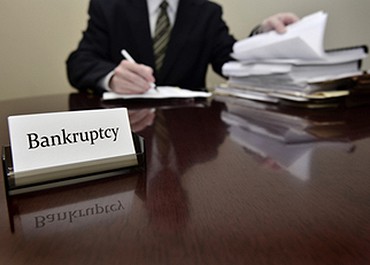Call For Free 15 Minute Consultation(212) 739-7599
Lawline Online Course: A field Manual for Involuntary Bankruptcies - Thursday, 11/5/2020 at 3:00pm EST
Make sure to Reserve your online seat - (Click Here)
Please Note: We are OPEN, continuing to represent clients and accepting new clients However, due to local directives, all meetings and interviews can be conducted via telephonic or video conferencing. Do not hesitate to contact us with any questions, concerns or requests for information. Our free 15 minute telephone consultation remains available.
Call For Free 15 Minute Consultation(212) 739-7599

Bankruptcy relief is not a sign of failure. It expresses hope. There is life after bankruptcy. Potentially, a better life. Bankruptcy discharges are “fresh starts” for individuals to build futures, where their pasts are not repairable.
But, a debtor’s past can prevent a bright, post-bankruptcy future.
Bankruptcy Code §§ 523 and 727 provide means for limiting or eliminating that fresh start. Section 523 identifies specific debts which can be excluded from discharge. These debts are generally from significant breaches of duty (e.g., not paying taxes or spousal support) or willful and malicious injuries (e.g., fraud, punching out someone’s lights, vandalism). These challenges belong to the person holding the specific claim.
Section 727 lists twelve grounds for denying an entire discharge of all debts. These grounds amount to efforts or conduct which violate the Bankruptcy process’ integrity (e.g., lying on schedules or under oath, hiding assets, destroying records).
Bankruptcy discharges are reserved for the “honest but unfortunate debtor.”1
In chapter 7 cases, objections to discharge2 and dischargeability of claims arising from fraud or willful and malicious injury3 must be asserted within sixty (60) days of the first meeting of creditors.4
In chapter 11 cases objections to dischargeability of claims arising from fraud or willful and malicious injury5 must be asserted within sixty (60) days of the first meeting of creditors.6 Objections to discharge must be asserted by first date of the hearing to consider confirming debtors’ plans of reorganization.7
In chapter 11 cases objections to dischargeability of claims arising from fraud or willful and malicious injury8 must be asserted by the date set by the court in each case.9 Objections to discharge must be asserted by first date of the hearing to consider confirming debtors’ plans of reorganization.
These deadlines are interpreted strictly, consistent with the Bankruptcy Code favoring fresh starts and prompt case administration.10
Nevertheless, for the deserving creditor, these deadlines can be extended.
The Bankruptcy Rules authorize extending these strict deadlines.11
The criteria for deciding whether to extend a creditor’s time to object to discharge or dischargeability are:
1) whether the creditor received sufficient notice of the deadline to file an objection;
2) the case’s complexity;
3) was the creditor diligent in seeking discovery from the debtor;
4) did the debtor refuse, in bad faith, to cooperate with the creditor; and
5) the possibility that proceedings pending elsewhere will impact relevant issues in the bankruptcy case.12
Diligence!
Sixty days runs by quickly. Last-minute efforts to obtain discovery and extend the deadline won’t suffice. The majority views failure to diligently pursue discovery prior to the deadlines expiring as not justifying extending the deadlines.13
As examples, diligence was lacking where creditors waited until: a.) five days before the deadline to seek discovery and moved to extend the deadline at the deadline14; b.) five days before the deadline to seek discovery15; c.) ten days before the deadline to seek discovery.16
So, what’s an aggrieved creditor to do?
Strategy for Challenging Discharge
1. Decide whether, post-bankruptcy, your debtor will have assets to satisfy your claim. Will the result be worth your efforts and expense?
2. Gather proof that your claim is not dischargeable. You’ll probably have it before the petition is filed.
3. If you’re challenging discharge:
a.) review the debtor’s schedules;
b.) attend and ask intelligent questions at the first meeting of creditors;
c.) promptly move for an order authorizing the debtor’s deposition under Fed.R.Bankr.P. 2004;
d.) use your evidence to frame your complaint and maybe avoid the need to move for an extension;
e.) maintain records of your efforts to obtain discovery.
4. If more time is needed to prepare and file a complaint, move for an extension as soon as you know it. Present evidence17 showing you satisfy the requirements.
5. By now it’s obvious that this is not simple stuff. Hire a lawyer familiar with bankruptcy practice.18 Listen to them. This is about money. It’s not about the debtor being horrible. You don’t want to needlessly injure yourself beyond what you’ve already suffered.
Being owed money by a [email protected]#$%^&*)(!! who seeks bankruptcy relief is no joy. However, there is life after bankruptcy. Their bankruptcy may not end your recourse to them. If you’re going that route, diligence is required.
As always, we’d love to hear from you. Questions, comments, enlightenment and jokes are always welcome.